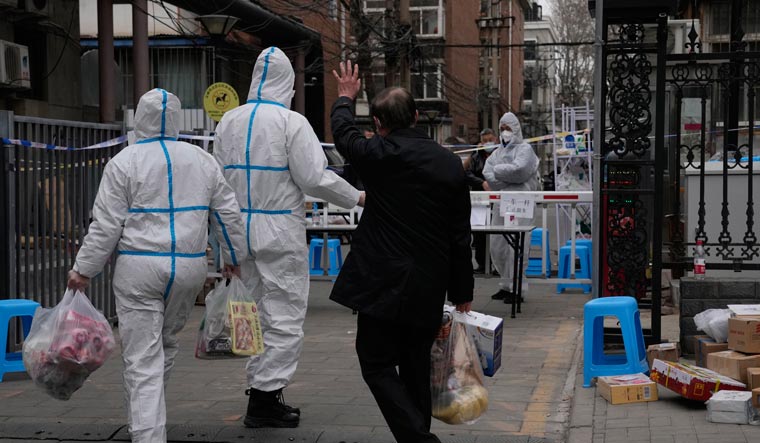China is witnessing an unprecedented movement, civil disobedience that has prompted thousands of frustrated Chinese citizens to take to the streets against the government's draconian zero-Covid measures. Despite the measures to curb the unrest, the demonstrations seem to be only spreading to other cities, in a direct challenge to Chinese president Xi Jinping's iron grip over his citizens.
But what triggered this situation in China, despite most of the world moving on from Covid to normalcy? Why brought China, which boasted the success of its zero-Covid policy last year, to the breaking point?
Many experts allude to the flaws in the zero-Covid measures, including lockdowns aimed at smothering outbreaks and a failed vaccination policy, for the current crisis. While China may have succeeded in controlling previous outbreaks by imposing lockdowns and restricting the movement of at-risk groups, its efforts were hampered by the state's failure to raise immunity among the vulnerable population by allowing some amount of transmission.
According to Yanzhong Huang, a senior fellow for global health at the Council on Foreign Relations, China's focus was on containment. "More intensive-care beds and better vaccination coverage should have started two-and-a-half years ago, but the single-minded focus on containment meant fewer resources focused on this," he told The Washington Post.
Huang added that even the effective mRNA boosters, which China currently lacks, will be of little help to "resolve the fundamental problem with China’s goal of eliminating infection rather than mitigating symptoms."
The country's lockdown measures, costlier yet ineffective, to deal with new variants of the virus is no long appropriate. Experts believe the government could prepare for the outbreak by introducing effective vaccines and antiviral therapies and boosting vaccination rates instead of focusing on such draconian measures.
"Using lockdown and containment measures to deal with an infectious disease with such a low mortality rate and high transmissibility is no longer appropriate. The whole world has abandoned this approach – nobody can stand the cost, it’s simply not working," Jin Dongyan, a virologist at the University of Hong Kong, told CNN.
Vaccination
The Chinese vaccination policy too is full of flaws. The country's zero-Covid policy has stopped a majority of its 1.4 billion people from being exposed to the virus. Though they have launched a more aggressive vaccine drive now, a huge chunk of the elderly community remains vulnerable.
Ironically, for a country that claims to have developed the first Covid vaccine, China is yet to come up with a native mRNA vaccine. Thanks to the ruling Communist party's innate nationalism, it has refused to import or licence a foreign one. This has resulted in the country's vaccination programme ending up mostly ineffective.
This is besides the questions raised over the efficacy of Chinese vaccines. Private pharma firm Sinovac and state-run Sinopharm which manufactures the vaccines in the country have reportedly not yet published the final-stage clinical trials, casting doubts over the success of the vaccines.



